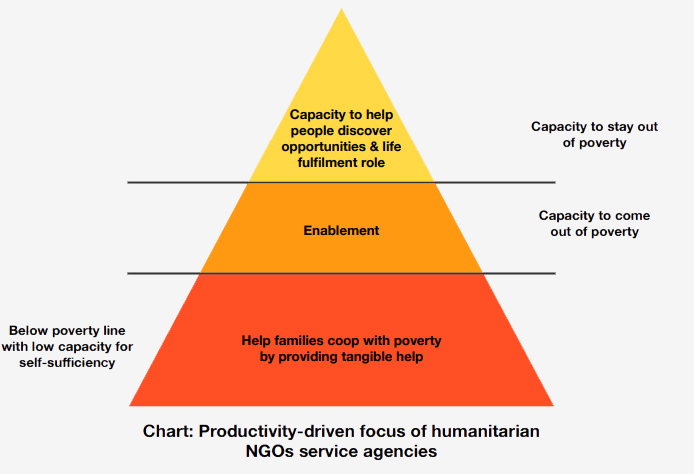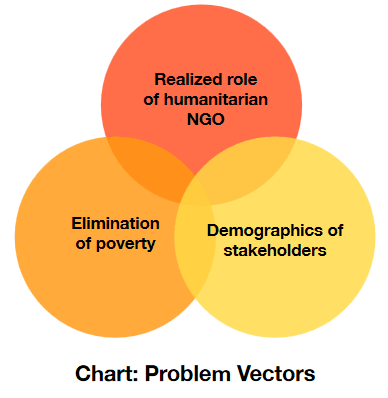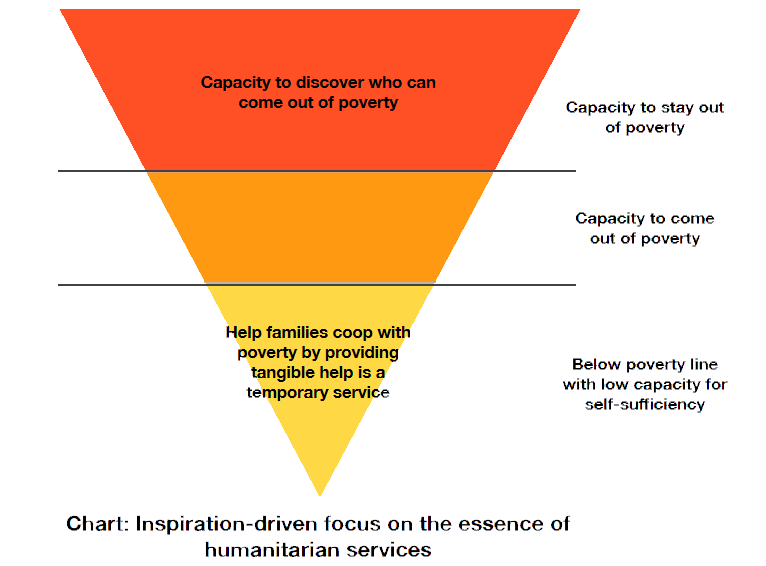The Case
Merhemat is an NGO providing cooked food and tangible help for poor Bosnian families
The NGO faces a problem of rapid increase of people categorised to be in poverty
The list of families dependent on the cooked food grew from 300 to 600 families
This resulted in a long waiting list of families in “need” which is beyond the NGO’s capability
What makes it worse is that most of the humanitarian cases stay in the cycle forever.
40% of the NGO’s service receivers are found to be between the age of 16 to 39
To catch up with the increasing demand, the NGO puts all its efforts in securing more funds
This is done to ensure more resources are available; more food to provide for the families
As a result, dependency becomes a habit and poverty increases in the same family

The Process:From Chaos to Intelligence
1. Observation & Data Collection

Revising the model
Discuss Vision & Mission
Review process & system
Review existing assets
Study current situation and conditions
Review demographics

Mapping the data
Establish categorization metrics
Categorize & Classify data
Summarize current situation
- - Site visits “walking the process”
- - Discussions and deep dialogues
- - Interviews
- - Data maps
2. Discover and Define Opportunities

Discover opportunities
Differentiate what we know from what we don’t know
Map the problem vectors/main components
Explore and discover opportunities lying underneath the current situation

Define goals
Narrow down and define focus
Define short term and long term goals
Reverse the model
- - Problem vectors chart
- - Priority matrix
- - Model reverse - reverse thinking
- - Visualization and road-mapping

The Solution:From Empathic to Sympathetic
3. Propose & Test Solutions

Build a network of youth to help manage the NGO’s services; teaching them to be independent and raising the capacity of the NGO
Prepare a proper codification study to categorise families based on new metrics that aim to divide them into three categories (Green, Red, Yellow)
Based on the codification, train those with less priority to cook, in order to give them dry food instead of cooked food; which is more expensive
Reduce the percentage of young people receiving help by empowering them to be independent through training and entrepreneurship programs
Form a new kind of partnerships that focus on building knowledge and providing mentorship support services rather than just funding
Starting a bakery that’s managed by the service receivers; empowering them to add value and reducing the cost by baking in-house















